Leave it to director Rob Reiner to deliver another eye-opening and entertaining cinematic look at a slice of history and politics with his latest film, LBJ. We all know LBJ. He was 36th President of the United States, assuming power on the assassination of John F. Kennedy. He was seen as cantankerous, unyielding, and unsympathetic. For many, LBJ is associated with the escalation of the war in Vietnam. But he was so much more. LBJ’s legacy includes Medicare and Medicaid, the Voting Rights Act, and the Civil Rights Act, the latter which was part of JFK’s initiative and which LBJ determined to complete – and did. As Reiner discovered in his research, LBJ was a workaholic and determined to prove himself through his abilities. He is second only to FDR in terms of his legislative success and what he was able to accomplish.
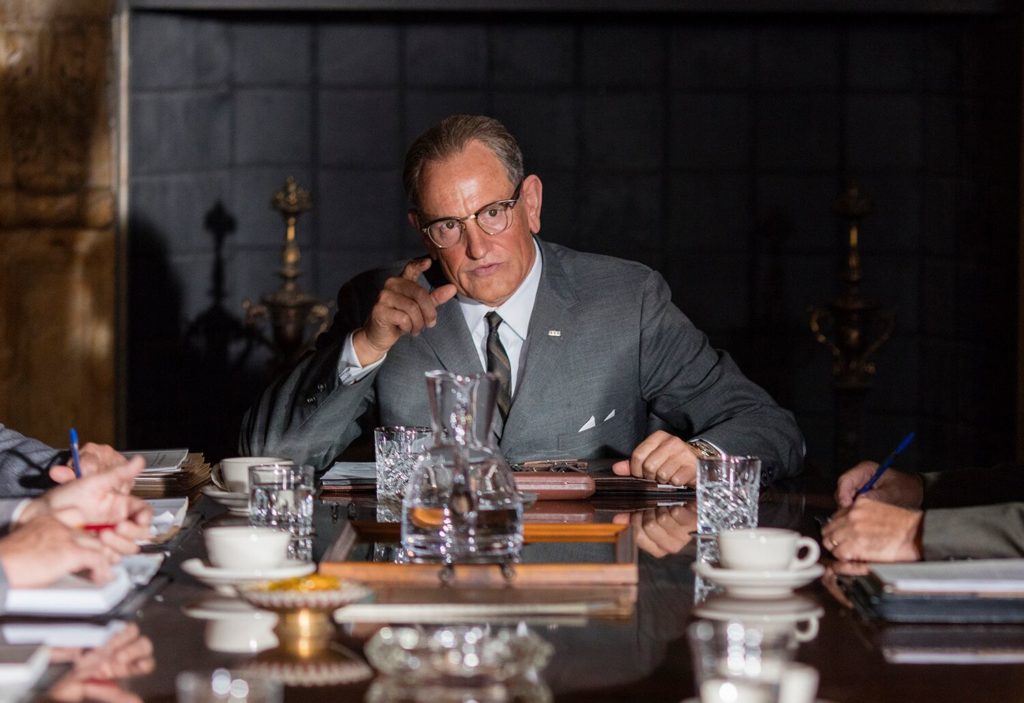
For Reiner’s purposes, however, he chose to focus on a very specific period of time in LBJ’s history – the time frame encompassing the landing of the Kennedys at Love Field in Dallas to Johnson’s civil rights address before the Joint Session of Congress. Viewing this story through this narrow lens of a character-revealing, stressful situation where LBJ assumes the burden of the presidency, speaks volumes as to the character of the man himself. A more timely and telling film could not be had at this particular moment in time given the socio-political state of the United States today. A more emotionally satisfying look at the private workings of a public figure would be hard-pressed to find.
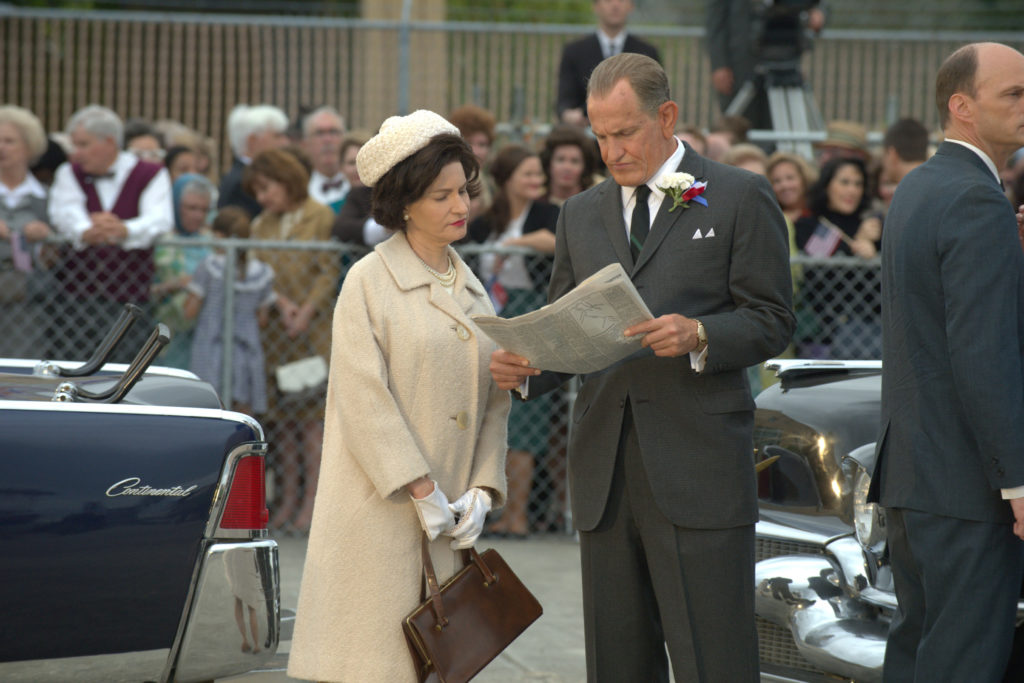
Adding to exemplar production values, LBJ boasts an impressive, award-worthy cast, starting with Woody Harrelson in the title role. Hand Harrelson the Oscar for Best Actor right now. Talk about a performance! Even under heavy facial prosthetics to make him resemble LBJ, the expressiveness of his eyes ranges from that of a devious twinkle to fiery go-getter, to compassionate leader and comforter, to a man despondent and defeated, to a loving and grateful husband. Never has Harrelson spoken such volumes with his eyes. The physicality he brings to the role is equally impressive from Johnson’s gait and stance to patented hammering fists, movements, and other tics and tricks we saw first-hand over the decades both in Congress and in the White House. But it’s the conviction of emotion which elevates a wonderfully layered script by Joey Hartstone, making Harrelson’s work not only the performance of the film but provides factual depth to the history unfolding. The attention to minutiae and details which LBJ could recall in the blink of an eye was well known during his life, but to see Harrelson encapsulate that and bring it to life with spontaneity is a testament to his skill as an actor. Another emotional avenue that is successfully showcased is LBJ’s brand of humor. It all proves to be enlightening, engaging, and engrossing.
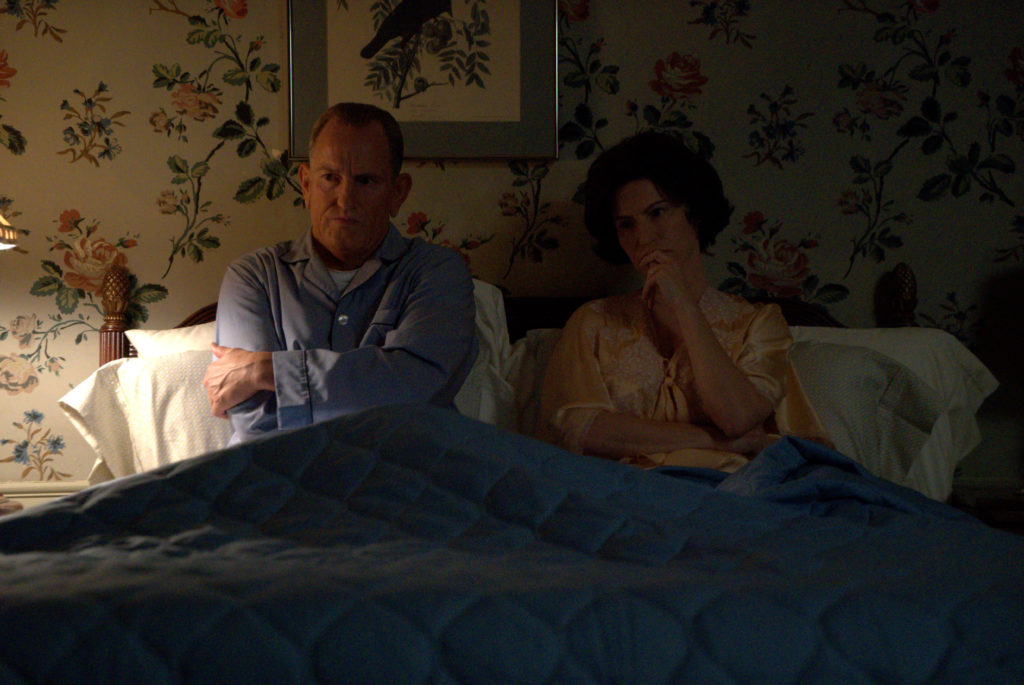
And then there’s Jennifer Jason Leigh as Lady Bird. Kudos to hair and make-up which is so spot on in creating Lady Bird, you may find yourself doing a double take. Completing Lady Bird’s portrayal is her costuming which is period perfect and perfect for the character. The negligees and peignoirs are quite elegant yet simple, appropriate for a woman from Texas with a husband in the government. The dresses could have walked off the pages of a Sears catalogue. Interesting is the quiet strength and calm which Jason Leigh imbues within her performance, drawing some attention to the woman behind the man. Reiner and company have keenly captured the authenticity of both Johnsons and their lack of pretension, creating a telling contrast with the Kennedys.
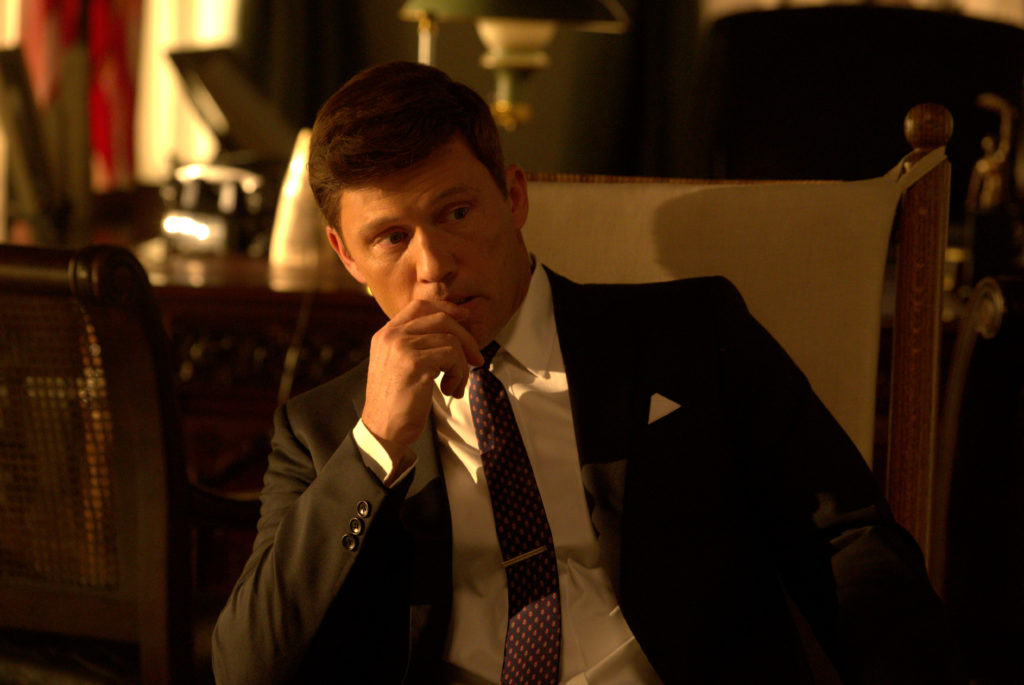
Speaking of the Kennedys, look no further than Jeffrey Donovan as the go-to JFK. As good as Greg Kinnear was with his portrayal of JFK in the mini-series “The Kennedys”, in LBJ, Donovan is right up there with him and nails JFK to a tee. The physicality, the gait affected by back injuries, the elegance and stature, the way he sits and tilts his head to the side a la JFK when listening or in thought. The real winner is with the accent. Vocal perfection. Donovan infuses contrasting vocal emotional nuance into JFK’s dialogue be he speaking with LBJ or Bobby Kennedy. Very telling. The entire performance is award caliber. But where there’s JFK, there’s RFK and Michael Stahl-David gives an emotionally charged, hot-headed, stubborn take on Bobby – something well known in RFK’s battles with LBJ. Fascinating to watch Stahl-David’s interpretation. And his chemistry with Harrelson’s LBJ? Their exchanges and face-offs are electric.
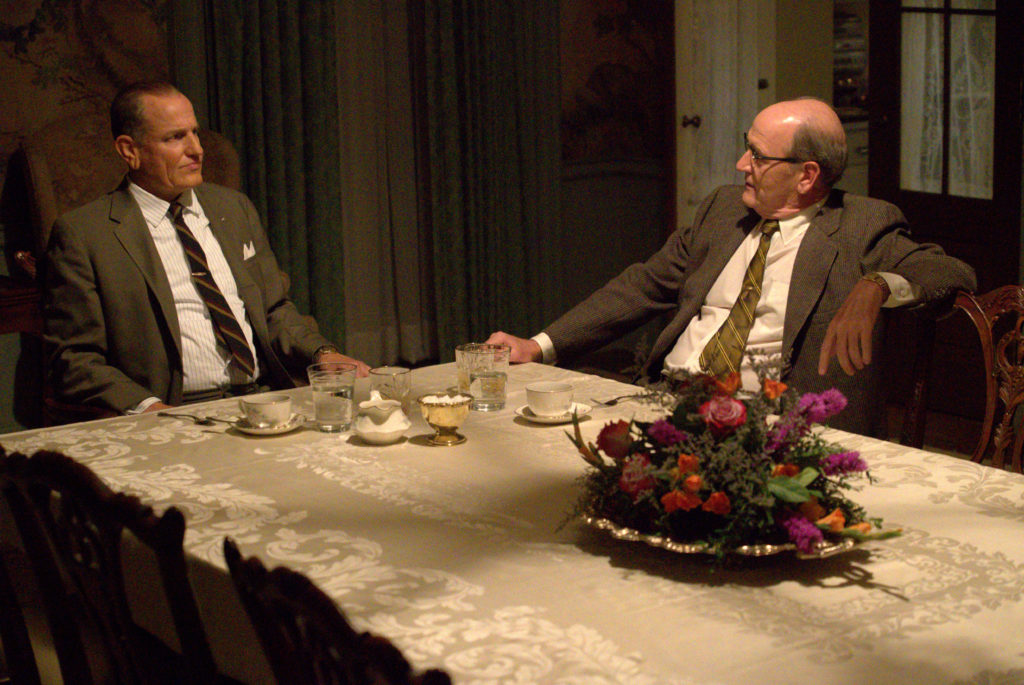
Adding depth to LBJ’s political experience and abilities of persuasion and pragmatism are Harrelson’s exchanges with and the conflict that Bill Pullman and Richard Jenkins bring to Senators Yarborough and Randall, respectively, as we see their reversals of fortune unfold with LBJ. The dynamic of that triumvirate is a part of history of which many may not be aware or have forgotten with time. To see it played out here is not only historically refreshing but eye-opening on many aspects of politics, as well as LBJ’s conviction and powers of persuasion.
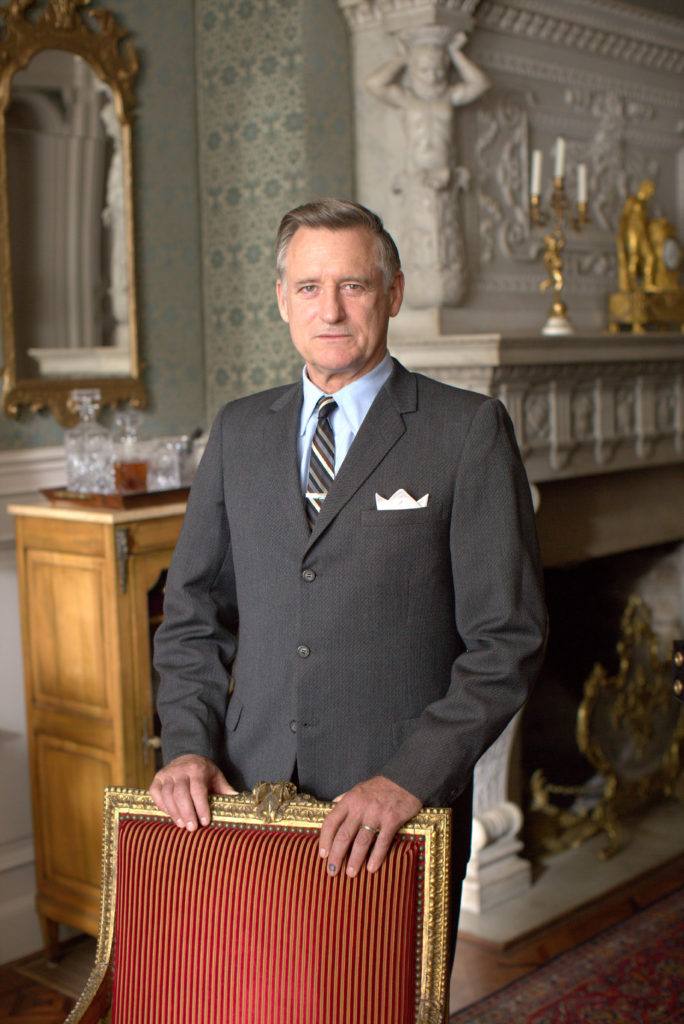
Without Joey Hartstone’s script, however, LBJ wouldn’t be what it is. As comes as no surprise with Rob Reiner directing, we are given a history lesson – both public and behind closed doors history lesson – of a very volatile period in America and American politics. Perhaps not as divisive then as now, but watching this film unfold and seeing and understanding the gifts LBJ had for compromise and/or sticktuitiveness and persuasiveness is brilliant – and telling – with lessons learned that can be applied today. While the majority of these players are well known to most, it’s the legislative machinations of Washington that are eye-opening stand-outs and help fuel the story.
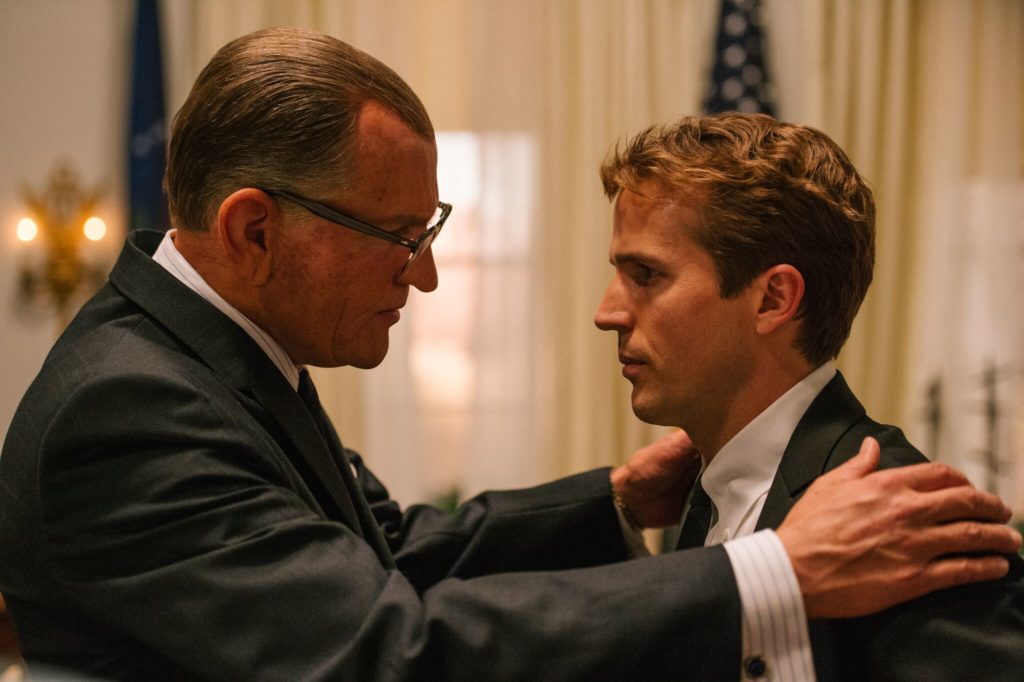
With extensive research behind them thanks to the Freedom of Information Act, Reiner and Hartstone craft a film which incorporates private letters, date books, audio tapes, video, and more, in addition to public legislative records, allowing them to create a fully-fleshed tapestry of LBJ, the man. We feel the depth of LBJ’s exclusion and frustration as VP, but then are able to see him keep pushing forward like the little engine that could. There is a level of respect that permeates the film, even in the most contentious of situations, perhaps most telling in the dynamics between LBJ and Yarborough, and LBJ and Senator Russell. There is also no holds barred when it comes to civil rights and the race card with both sides of the fence well represented visually and in dialogue. Eloquent and caring is an LBJ monologue about civil rights where he speaks about his African-American cook being family and that he was not going to stand for her not being able to drive through the South, unable to use a restroom.
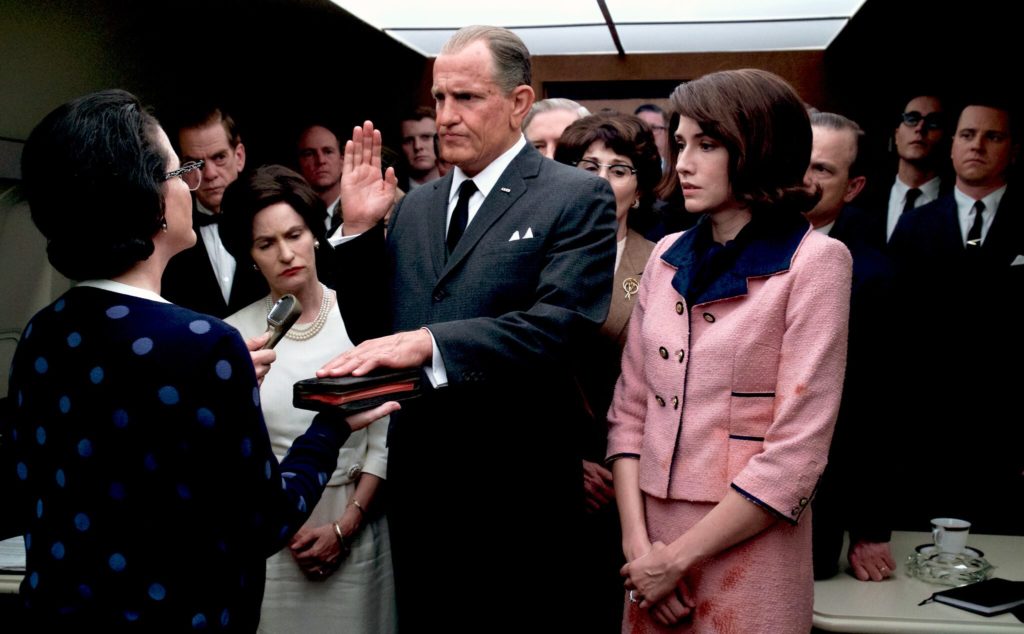
Barry Markowitz’ cinematography is impeccable. Lensing is traditional and effective. Lighting is outstanding in some hard-charging scenes and mirrors the harshness of situations. On the flip side, the golden tones of the Johnson’s Washington residence, particularly a kitchen scene the evening he is sworn in as president, provides a warmth as LBJ practically runs through the house, his mind moving a mile a minute, keeping the government running, establishing his position, and still thinking about using “the good stationery” to write letters to John John and Caroline Kennedy. Framing within LBJ just intensifies the performances while creating a more intimate connection with the man for the audience.
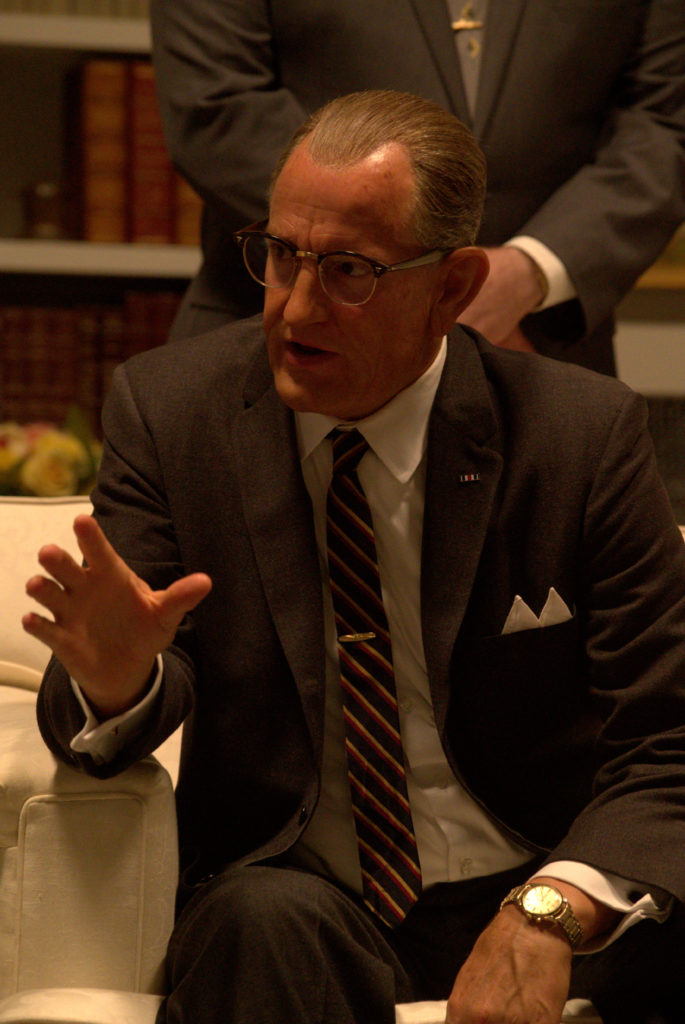
As we saw from Reiner with THE AMERICAN PRESIDENT, Marc Shaiman’s score is rich, lush and full, sounding respectful and very presidential.
Acknowledging that much of the movie-going public today not only weren’t yet born during Johnson’s time as a Senator or as President, but probably have little knowledge of political history, LBJ smartly focuses on the legislative aspect of LBJ and his presidency, specifically the Civil Rights Act, as well as the respectful discourse and dialogue among adversaries. When viewed through today’s lens, Reiner delivers a stinging commentary on the ineffective government in place today and the inability of the men responsible to create and effect change.
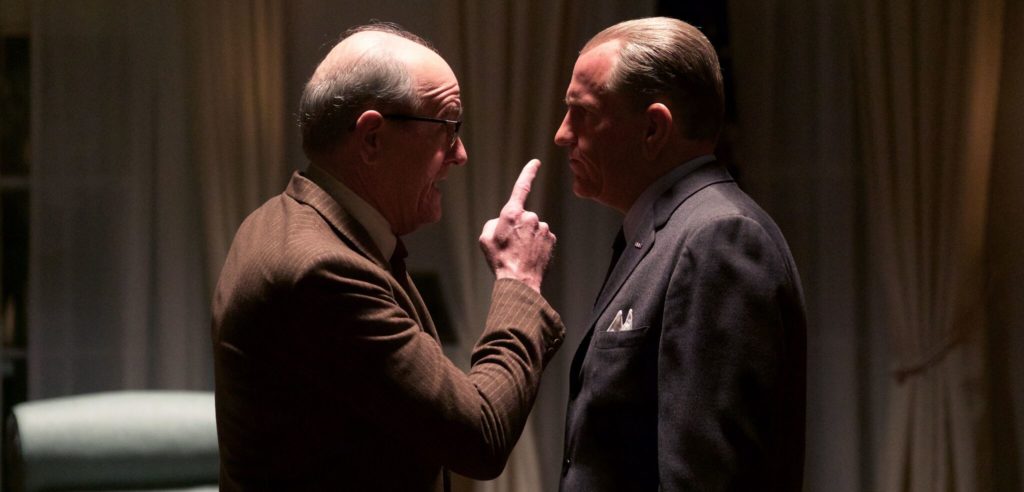
LBJ is an eye-opening and sensitive look at a man who looked everyone in the eye and fought with conviction and respect to bring a nation together during one of its darkest moments.
Directed by Rob Reiner
Written by Joey Hartstone
Cast: Woody Harrelson, Jennifer Jason Leigh, Bill Pullman, Richard Jenkins, Jeffrey Donovan, Michael Stahl-David
by debbie elias, review 09/21/2017












